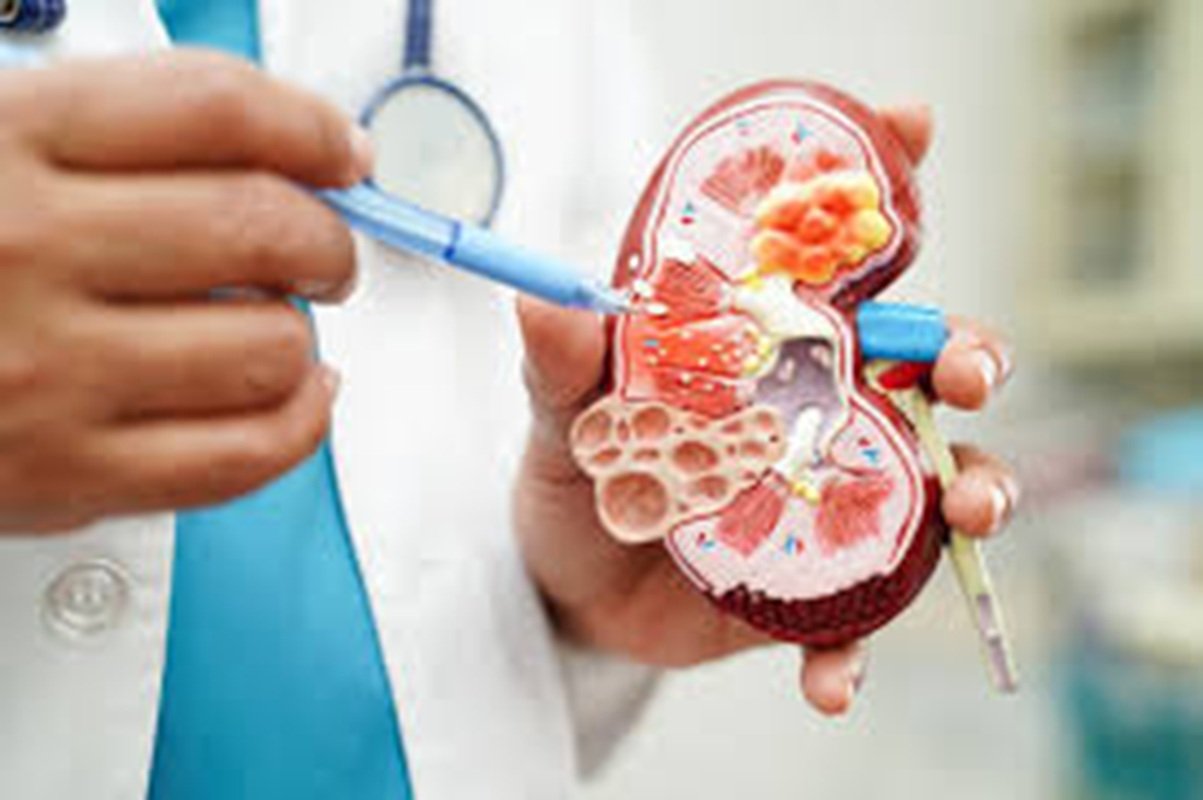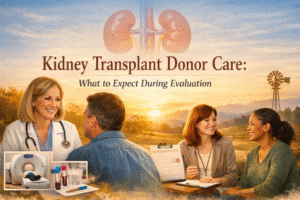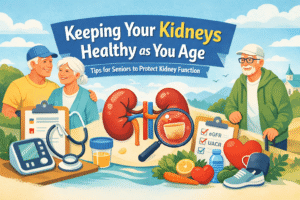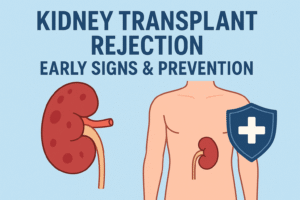Anyone who has had a kidney stone remembers it. The pain is sharp, sudden, and hard to forget. It can hit while you are at work, relaxing, or in the middle of the night — no warning. And once you have had one, chances are, another could follow.
At Southern Oklahoma Kidney Center, we focus on stopping that next one before it forms. And if a stone is already giving you trouble, we know how to deal with it fast. Kidney stone prevention and treatment do not need to be complicated, but it does need to be personal.
How Do These Stones Even Start?
They do not show up out of nowhere. Your urine gets too concentrated — maybe because you are not drinking enough, or your body chemistry is off. That causes tiny crystals to form. At first, they are small. But if nothing changes, they grow, clump together, and turn into stones.
It could be your diet. It might be your meds. Sometimes it is just how your body handles waste. That is why we never guess. We test, we ask questions, and we tailor a plan around what is going on with you.
That process is called mineral buildup, and it can lead to sharp, sudden pain, especially if the stone causes a urinary blockage.
Some common causes include:
- Low fluid intake
- Diets high in salt, animal protein, or sugar
- Genetics
- Certain medications or supplements
The good news? Most of these causes can be addressed with simple changes.
Signs You Should Not Ignore
Kidney stones often announce themselves loudly. But sometimes, they hide until they are big enough to cause trouble.
Watch for:
- Pain in your back, side, or lower belly
- Blood in your urine
- Nausea or vomiting
- Urgent, frequent urination
- Trouble peeing at all
These symptoms can mean a stone is moving — or blocking your system. Either way, get checked fast.
Simple Changes That Lower Your Risk
It is far easier to stop a kidney stone from forming than to treat one that is already causing problems. That is why we build kidney stones prevention and treatment plans around each person’s unique risk factors, not just the symptoms.
Start here:
- Hydration for kidney health — drink enough water to keep your urine clear
- Cut back on high-sodium snacks
- Balance your calcium and oxalate intake (found in things like spinach or nuts)
- Reduce sugary drinks and animal proteins
- Do not overuse supplements unless your doctor says to
Everybody is different, so we test your urine to figure out your specific risk factors.
When Treatment Becomes Necessary
Sometimes, prevention is not enough — and stones form anyway. In that case, we help you decide what kind of treatment makes the most sense for your situation.
Options may include:
- Medications to relax the ureters or prevent stone formation
- Sound wave therapy (lithotripsy) to break stones into smaller pieces
- Ureteroscopy — a small scope to remove or break stones directly
- Surgery (in rare or severe cases)
The right treatment depends on the stone’s size, location, and type. We explain all options and help you make a decision that feels right.
What About Recurring Stones?
If stones come back, we go deeper. That includes detailed urine testing, bloodwork, and looking at your full medical history. Some people need long-term medications or more specific diet changes to stop the cycle.
The goal is not just to fix the pain — it is to stop the pattern.
You can always reach out to our urology care team to get evaluated and build a prevention plan before another stone strikes.
What You Do Now Matters Most
Kidney stones are more common than people think, but they do not have to be your future. A few changes to what you drink, how you eat, and how often you check in with your care team can make a big difference. If you are in pain or simply want to avoid that kind of pain again, we are here.
At Southern Oklahoma Kidney Center, we take kidney stone prevention and treatment seriously — and we tailor it to real life.




